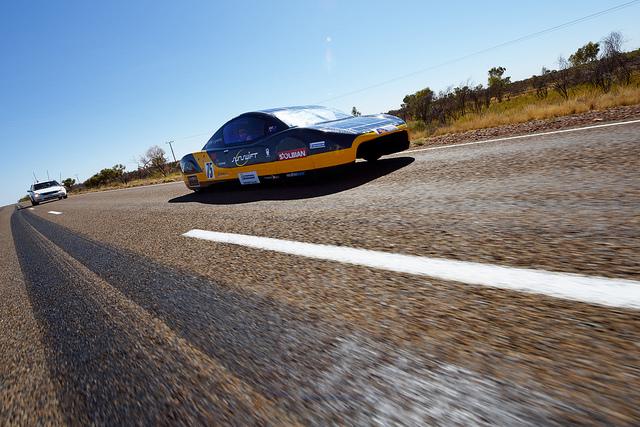Australia’s University of New South Wales (UNSW) solar racing team has turned to crowdfunding in order to raise the money for their eVe solar car’s road registration.
60 students aim to raise a third of the needed amount of $30,000 for the car using the site Pozible and source the remaining amount and components from contributions and sponsors.
According to engineering student Hayden Smith, who is also the project’s director, the entire car needs to be deconstructed and rebuilt for it to qualify for full registration. If successful, the team’s eVe vehicle could become the symbol of sustainable driving in the 21st century. Covered in solar panels that have zero carbon emission, the car utilises a solar cell-chargeable battery system.
eVe Vehicle leading the way for sustainable driving
The world record for fastest electric car over the 500 kilometre mark was recently smashed by the eVe after 26 years, proving to one and sundry that the car is capable of being driven at a maximum distance which the regular road user may want to cover in one day. But there is still much to be done for the Sunswift solar car, according to Smith.
Sunswift team working on eVe solar vehicle
The car’s interior will have to be redesigned in order to comply with safety regulations as well as provide the comfort that accompanies the use of a commercial vehicle. The car will also require adequate impact protection for its rear, side, and front, windscreen wipers, new wheels, headlights, raised suspension, and other electrical components which also need updating.
According to student Rob Ireland, who is also Sunswift chief business manager, developing more sustainable forms of transportation alternatives and subsequent potential for commercialisation will be the direct effect of solar cars on the roads. The campaign to restore the eVe began on 01 December 2014, with Sunswift aiming for a March 2015 completion in time for road registration.
Crowdfunding making Sunswift’s solar vehicle success possible
Supporters of the eVe project who contribute have rewards in store for them including mantelpiece solar cell trophies, a limited, one time occupancy of advertising space during public relations events, and printed models of the eVe in 3D. After this, the next step is to make the Sunswift solar car affordable for the average driver by conversion from concept vehicle to road-registered coupe.
While there are few electric cars that can match the range of the Tesla Model S, the eVe can. And in a country like Australia where the use of solar energy has become ubiquitous, the eVe may soon be the most practical buy for a first-time car owner. The thing to watch out for is whether the eVe can rise to the transformation from solar racing car to the road legal vehicle.
Mass production of Sunswift’s eVe vehicle could be in the near future
The success of the eVe will be the first time that a university’s solar car racing team is able to build a car compliant to the very stringent standards set by the Australia Design Rules the country’s benchmark for governing anti-theft, greenhouse gas emissions, and vehicle safety. The same success will also be the catalyst for crowdfunding future solar projects and mass producing the eVe.
(C) Photography by Solar Team Eindhoven



